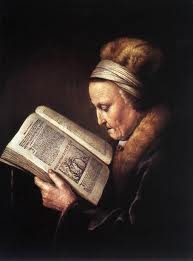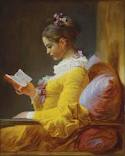something for the ladies
Imagine my surprise when I opened my copy of The Bookseller on Friday and discovered a new category of fiction: Intelligent Women’s Reads.
I’ll just run that by you again: Intelligent Women’s Reads.
Now, I’m going to be optimistic here and operate under the assumption that the adjective is being applied to the books, rather than the women. If not, we have a whole new problem to deal with.

What are intelligent women’s reads? Well they aren’t ‘Glitz’, as that has a category of its own. Nor are they ‘Romance’, ‘Regional Sagas’ or ‘Historical Fiction’, because they’re also taken care of elsewhere. Presumably the readers of those novels are still struggling to achieve doubt-digit IQs, poor souls. I’d better drop a note to Sarah Waters and ask her to write in monosyllables for the next one.
What are ‘women’s reads’ in the first place? I’m curious about this because it seems – both anecdotally and objectively – that women make up the majority of fiction readers anyway; wouldn’t ‘Men’s Reads’ be more to the point? This is no academic exercise – The Bookseller serves…well…booksellers. And they need to manage their categories in order to…you know…sell books. Men are demonstrably easier to categorise: they buy less fiction, and the fiction they buy tends to be narrower in scope.
A survey conducted by Lisa Jardine and Annie Watkins revealed as much: women were found to have catholic reading tastes, enjoying a broad range of titles by both genders and all sorts of genres; male readers were more limited in every respect. Of their top twenty titles, only one was by a female author. ‘Is it churlish of us,’ asked Jardine and Watkins, ‘To suspect that some men did not realise that Harper [Lee] was a woman?’ Yes, it is a bit churlish.
Made me laugh, though.
The concept of ‘women’s reads’ then, seems far less useful to the trade than its alternative. Is it churlish of me to suspect that ‘men’s reads’ hasn’t been embraced because of the way it belittles male customers?

And what of those ‘intelligent reads’? Unfortunately, the implication – that ‘women’s reads’ are, by default, unintelligent – is one which women have become accustomed to over the last couple of centuries. There’s a catch 22 here: the literary forms most beloved by women are accorded a low status because women readers are because women are, and we know they’re dumb – have you seen what they’re reading?
My colleagues who write ‘women’s commercial fiction’ are well-used to the snobbery directed at their novels (and their readers). They are resigned to comforting themselves with the royalties. And that, perhaps, is where the answer lies. Because at the moment there’s a gulf between the power that women fiction readers actually have (we bankroll the operation, ladies), and the powerlessness implied by a situation in which a disroportionate number of male book reviewers focus on a disproportionate number of male-authored books, while scant respect is accorded to women’s reading habits.
I feel it may be time for some action. We could do it seriously (like the two women who asked W H Smith to stop using the label ‘Women’s Fiction’; Smiths agreed), or we could have some fun with it. What do you reckon? Personally, I’m sneaking into my local bookshop with a sign saying ‘Intelligent Men’s Reads’. Think I might put it up next to my favourite Alan Bennett.